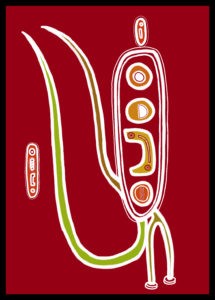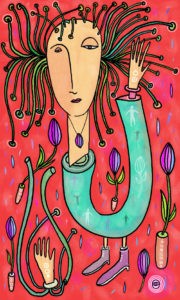And think of all the words we use at the Seder: Freedom, exodus, salvation, emancipation—are any of them even the least bit relevant? I know many families who in an effort to create relevance hold Seders to express solidarity with victims of sexual slavery for example, or the rights of migrant workers, or to protest the oppression of certain ethnic groups. And while these are certainly worthwhile concerns, I wonder how it is that we in our hubris, so often assume that we are somehow not in need of our own liberation. But what does it mean to be free, especially in places like the United States where we are in fact free, at least in the political sense?
By removing our own ‘narrowness,’ each of us can become, in a very real sense, a source of leadership, bringing hope and kindness to others wherever we find ourselves.
Given that Judaism is primarily a pursuit of the spirit, I would suggest that the notion of freedom that Passover is concerned with takes place on a much more personal level. To me, that word ‘freedom,’ at least in the context of Passover, isn’t something abstract or removed from our daily lives, rather, it’s about the most relevant and personal ideas imaginable; freedom from our animal natures, freedom from internal forces that urge us to receive, rather than to give, freedom from the need to always be right —rather than to compromise, and freedom from an obsession with paucity, rather than an intense faith in an abundant future.
Mitzrayim, the Hebrew word for Egypt, is used well over a dozen times in the Haggadah and there’s a reason for it. Mitzrayim derives from the Hebrew root; “metzar”, meaning: narrowness, or restriction. One of the central themes of Jewish faith and tradition is the removal of restrictions from our lives. This has less to do with theoretical matters over which we have no direct control, and far more to do with concrete improvements in the way we think and act.
By removing our own ‘narrowness,’ each of us can become, in a very real sense, a source of leadership, bringing hope and kindness to others wherever we find ourselves. Whether it’s inspecting bell peppers at the grocery store, interacting with our children and spouses, or engaging with the guy who’s fixing the muffler on our car, what happens when we move toward this goal is that we slowly evolve into “unrestricted” people.
Little by little, when we consciously engage in and deeply consider the rituals of Passover, (or Mitzvot of any kind) we will find ourselves becoming less motivated by the desires of our ego. This state of mind, this more unrestricted way of thinking and acting, is precisely where the holiday of Passover is trying to guide us; that is, out of our myopia and into an expansive mode of living that is boundless in its empathy and creativity.
Each ritual of the Seder is designed with this in mind. The matzo for instance, in its flatness, is a symbol for humility. The Jewish mystical tradition teaches that ingesting matzo throughout the eight days of the holiday actually causes us to feel humble (albeit on some unknown physiological/spiritual level). Humility after all, isn’t just about reducing our overt arrogance, it also insists upon freedom from the overly self-critical voices in our head, restrictive voices which demand that due to our insecurity, we always be first, that we always be right, and that we always take more than our share.
Seen in a different but related light, the daily acts of terror that we see taking place in Israel and elsewhere are forces of evil working to destroy the delicate fabric of the world. The purveyors of these atrocities are the personification of Mitzrayim, this restriction I mentioned earlier. Clearly, most of us are not involved in direct military operations against ISIS or Hezbollah, but in some respects, our ability to promote optimism in our daily encounters may have as much to do with success against these forces as actual armed combat.

Illustration by Peter Himmelman
In spite of all the work it takes to prepare for the holiday, I like to think about it this way: Passover affords us a unique, once a year opportunity; it’s an opportunity to be with people we truly love and to counteract negative forces of all kinds —not to mention, to eat wonderful food.
And so, just as the God of Israel freed us from restrictions in ancient times, may we be made to feel ever-increasing levels of freedom in our own lives in these times.


